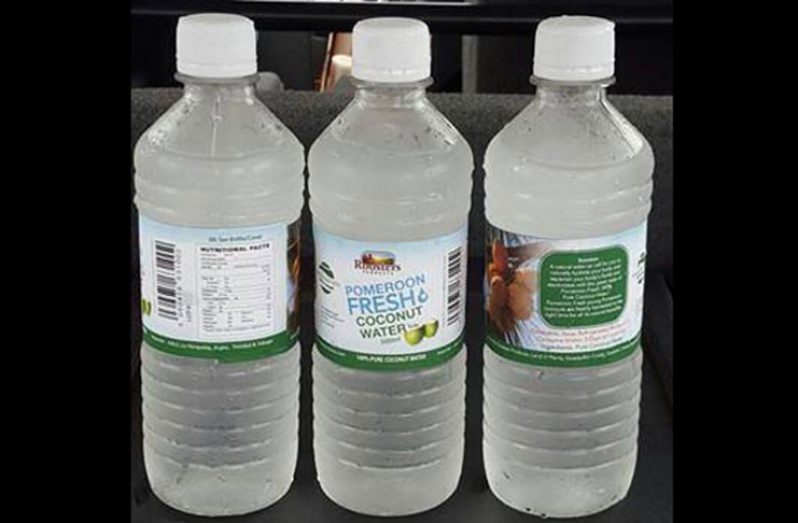–Standards Bureau urges local processors, exporters of coconut water
THE Guyana National Bureau of Standards (GNBS) is encouraging members of the local coconut water industry to adopt standards in the packaging of their products.
According to Public Relations Officer (PRO), Lloyd David the Bureau has been zealously advocating for local food manufacturers, food operators and agro-processors to purchase and implement the national food standards which it has available.
David said the majority of these food standards were developed from regional and or international food standards, hence their contents are in harmony with regional and international requirements.
Two such standards are the Guyana Standard, GYS 508:2013, ‘Specification for packaged natural coconut water’ and GCP 30:2013, ‘The Code of Practice for packaged natural coconut water’.
These standards, David said, are identical to the CARICOM Regional Organisation for Standards and Quality (CROSQ) Standards, and were adopted by the GNBS for use in the local coconut water industry to facilitate trade among CARICOM member states and other jurisdictions.
“It is therefore necessary for our local manufacturers to provide objective evidence that they are conforming to these minimum requirements,” he said.
As he went on to explain, the GCP 30 was developed with the aim of streamlining the coconut water industry by defining requirements for the hygienic preparation of packaged natural coconut water.
This Code of Practice, he said, gives recommendations for the hygienic preparation of packaged natural coconut water, in that it gives specific details on how to harvest, package, store, transport and distribute the product.
For example, David said, under ‘Harvesting’, the Standard states:
“Free fall of coconuts should not be allowed; coconuts should be lowered to the ground.” Proper harvesting techniques, David said, ensure minimal or no damage to the coconuts, thereby contributing to an untainted end-product.
The Standard also provides guidance as to the location, internal structure and fittings, floor design, drains, windows and doors of buildings and facilities for processing coconut water.
David said the GYS 508 was developed to differentiate the production of undiluted natural coconut water; that is, coconut water that has been packaged in its natural state without the use of additives.
According to the Standard, additives can be “artificial substance or ingredients added to the coconut water to enhance quality or preservation.” This Standard also includes analytical parameters, or limits, for the composition, physio-chemical, and microbiological limits for coconut water, which provides objective evidence and the necessary assurance that the coconut water is conforming to the recognised requirements.
Additionally, the Standard gives guidance for the labelling of natural coconut water; that is, “the name of the product shall be Packaged Natural Coconut Water.”
Said David: “For coconut water processors who desire to guarantee their customers that they are producing coconut water which is safe for human consumption, these Standards are for you:
“Contact the Guyana National Bureau of Standards, Marketing and Communication Department today to obtain copies of these standards.”
The GNBS is a key agency that supports trade and enhances business competitiveness through the implementation of standards.
Standards are primarily voluntary, but they play an important role in Guyana’s economy by facilitating easy business interactions and confidence in the products and services emanating from the various sectors.



.jpg)










